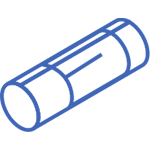

TAIWAN SEMICONDUCTOR CO LTD TS10K80
Manufacturer No:
TS10K80
Tiny WHSLManufacturer:
Utmel No:
2436-TS10K80
Package:
-
Description:
TS10K80 datasheet pdf and Unclassified product details from TAIWAN SEMICONDUCTOR CO LTD stock available at Utmel
Quantity:
Unit Price: $1.004138
Ext Price: $1.00
Delivery:





Payment:











In Stock : 478
Minimum: 1 Multiples: 1
Qty
Unit Price
Ext Price
1
$1.004138
$1.00
10
$0.947300
$9.47
100
$0.893679
$89.37
500
$0.843094
$421.55
1000
$0.795371
$795.37
Want a lower wholesale price? Please send RFQ, we will respond immediately.
RFQ Now
Add to RFQ list
You may place an order without registering to Utmel.
We strongly suggest you sign in before purchasing as you can track your order in real time.
For your convenience, we accept multiple payment methods in USD, including PayPal, Credit Card, and wire transfer.
RFQ (Request for Quotations)It is recommended to request for quotations to get the latest prices and inventories about the part.
Our sales will reply to your request by email within 24 hours.
1. You'll receive an order information email in your inbox. (Please remember to check the spam folder if you didn't hear from us).
2. Since inventories and prices may fluctuate to some extent, the sales manager is going to reconfirm the order and let you know if there are any updates.
- TypeParameter
- Surface Mount
having leads that are designed to be soldered on the side of a circuit board that the body of the component is mounted on.
NO - Diode Element Material
The parameter "Diode Element Material" refers to the specific semiconductor material used in the construction of a diode. This material determines the electrical characteristics and performance of the diode, including its forward voltage drop, reverse breakdown voltage, and switching speed. Common diode element materials include silicon, germanium, and gallium arsenide, each offering different advantages for various applications. The choice of material impacts the diode's efficiency, thermal stability, and overall suitability for specific electronic circuits.
SILICON - Number of Terminals4
- Number of Elements4
- Operating Temperature (Max.)150°C
- Operating Temperature (Min.)-55°C
- ECCN Code
An ECCN (Export Control Classification Number) is an alphanumeric code used by the U.S. Bureau of Industry and Security to identify and categorize electronic components and other dual-use items that may require an export license based on their technical characteristics and potential for military use.
EAR99 - Additional Feature
Any Feature, including a modified Existing Feature, that is not an Existing Feature.
UL RECOGNIZED - HTS Code
HTS (Harmonized Tariff Schedule) codes are product classification codes between 8-1 digits. The first six digits are an HS code, and the countries of import assign the subsequent digits to provide additional classification. U.S. HTS codes are 1 digits and are administered by the U.S. International Trade Commission.
8541.10.00.80 - Terminal Position
In electronic components, the term "Terminal Position" refers to the physical location of the connection points on the component where external electrical connections can be made. These connection points, known as terminals, are typically used to attach wires, leads, or other components to the main body of the electronic component. The terminal position is important for ensuring proper connectivity and functionality of the component within a circuit. It is often specified in technical datasheets or component specifications to help designers and engineers understand how to properly integrate the component into their circuit designs.
SINGLE - Terminal Form
Occurring at or forming the end of a series, succession, or the like; closing; concluding.
THROUGH-HOLE - JESD-30 Code
JESD-30 Code refers to a standardized descriptive designation system established by JEDEC for semiconductor-device packages. This system provides a systematic method for generating designators that convey essential information about the package's physical characteristics, such as size and shape, which aids in component identification and selection. By using JESD-30 codes, manufacturers and engineers can ensure consistency and clarity in the specification of semiconductor packages across various applications and industries.
R-PSFM-T4 - Configuration
The parameter "Configuration" in electronic components refers to the specific arrangement or setup of the components within a circuit or system. It encompasses how individual elements are interconnected and their physical layout. Configuration can affect the functionality, performance, and efficiency of the electronic system, and may influence factors such as signal flow, impedance, and power distribution. Understanding the configuration is essential for design, troubleshooting, and optimizing electronic devices.
BRIDGE, 4 ELEMENTS - Diode Type
In electronic components, the parameter "Diode Type" refers to the specific type or configuration of a diode, which is a semiconductor device that allows current to flow in one direction only. There are various types of diodes, each designed for specific applications and functions. Common diode types include rectifier diodes, zener diodes, light-emitting diodes (LEDs), and Schottky diodes, among others. The diode type determines the diode's characteristics, such as forward voltage drop, reverse breakdown voltage, and maximum current rating, making it crucial for selecting the right diode for a particular circuit or application. Understanding the diode type is essential for ensuring proper functionality and performance in electronic circuits.
BRIDGE RECTIFIER DIODE - Case Connection
Case Connection refers to the method by which an electronic component's case or housing is connected to the electrical circuit. This connection is important for grounding purposes, mechanical stability, and heat dissipation. The case connection can vary depending on the type of component and its intended application. It is crucial to ensure a secure and reliable case connection to maintain the overall performance and safety of the electronic device.
ISOLATED - Output Current-Max
Output Current-Max is a parameter in electronic components that specifies the maximum amount of current that can be safely drawn from the output of the component without causing damage. It is an important specification to consider when designing circuits to ensure that the component can handle the required current without overheating or failing. Exceeding the maximum output current can lead to performance issues, component damage, or even complete failure of the circuit. It is crucial to adhere to the specified maximum output current to ensure the reliable operation of the electronic component and the overall circuit.
10A - Number of Phases1
- Rep Pk Reverse Voltage-Max
Rep Pk Reverse Voltage-Max refers to the maximum reverse voltage that an electronic component, such as a diode, can withstand during a specified period of time without failing. This parameter is crucial in determining the safe operating limits of components in circuits where reverse voltage conditions may occur. Exceeding this value can lead to breakdown or permanent damage to the component. It is typically expressed in volts and is a key specification in signal and power applications.
800V - Non-rep Pk Forward Current-Max
Non-rep Pk Forward Current-Max refers to the maximum forward current that a semiconductor device, such as a diode or LED, can handle in a pulsed or non-repetitive manner without being damaged. This parameter is essential for designers to ensure that the component operates reliably under specific conditions, particularly during transient events like switching or fault conditions. Exceeding this limit can lead to overheating or failure of the device.
150A - Breakdown Voltage-Min
Breakdown Voltage-Min, also known as minimum breakdown voltage, is a crucial parameter in electronic components, especially in devices like diodes, transistors, and capacitors. It refers to the minimum voltage at which the component experiences a breakdown and allows a significant current to flow through it. This breakdown voltage is a critical threshold beyond which the component may get damaged or exhibit unexpected behavior. Manufacturers specify this parameter to ensure that the component operates within safe limits and to help designers select the appropriate components for their circuit requirements. It is essential to consider the Breakdown Voltage-Min when designing circuits to prevent overloading or damaging the components.
800V













